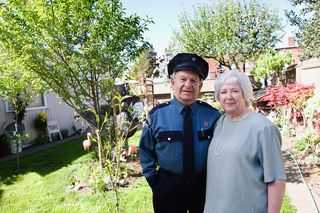

Up to 30% of Medicaid funding covers long-term care, which is roughly $100 billion annually. More than two-thirds of older adults will require some personal assistance before they pass away, and nearly 50% will need care to such a level that they'd be eligible for private long-term care insurance or Medicaid.
If you want to explore sheltering assets so you can qualify for Medicaid sooner rather than later, then you should talk to a qualified Medicaid attorney. You don't want to be without expert counsel, especially when making hard decisions on how to allocate money you've saved all your life.
A year of nursing home care can run upwards of $90,000, which means savings are going to run out quickly. Some folks start to transfer assets to their children earlier so they can have an inheritance. These transfers may be subject to a "clawback" or forfeiture if they happen within the five years before the elderly parent's application for Medicaid.
Medicaid is governed by both state and federal laws, so there are some variation depending where you live as to what it covers and what you can keep. Here are a few general tips to consider:
- In many states, you may be able to give one car or artwork to a child.
- Medicaid rules say that to qualify, an elderly widow or widower can't have more than $2,000 in "countable" resources.
- Most Medicaid recipients can still receive Social Security benefits; however, nursing homes can access these funds to pay for the cost of the room in addition to Medicaid coverage.
- The elderly can retain their homes for six months in the event they recover (unless it's worth more than $520,000), then they can either apply for a six-month extension or sell the house to pay the nursing home.
- For a senior couple, a house and a car for the spouse and certain items of personal property, like wedding rings, are exempt when calculating eligibility for Medicaid—the spouse can also keep half of countable resources up to $119,220.
Medicaid gets sticky quickly, so you have to monitor your elderly loved ones' financial and medical paperwork. Discuss long-term care plans with them as early as possible. Don't wait to talk in a crisis. The advice of an elder law attorney is essential.
Reference: USA Today (March 26, 2016) "Navigating Medicaid for elder care can be as painful as the ailments"


